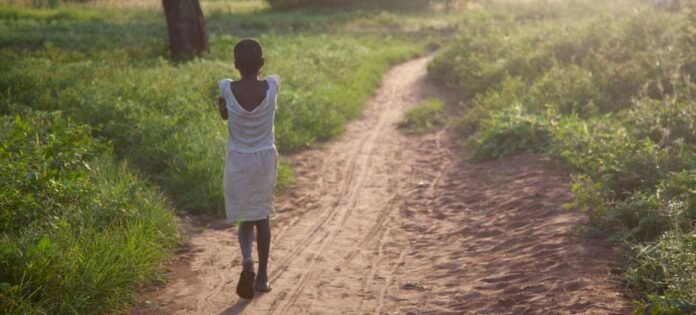According to the report, other factors, including extreme weather, displacement, food insecurity and economic instability, are responsible for the seriousness of gender-based violence and bounce.
It has a profound impact on the community that fights the delicate situation, where women already face the risk of violence due to discrimination.
According to the survey, global temperatures, including 1 degree centigrade growth, may show 4.7 percent increase in the case of intimate violence.
In the case of a growing temperature by 2090, in the case of 2 degrees centigrade, about four million girls and women may suffer violence cases by intimate companions, while temperature rise may double this number.
‘Spotlight Initiative’ is a global partnership between the UN and the European Union, which focuses on eliminating all forms of violence against women and girls.
The survey concludes that it is important to pay attention to the right, protection and justice to create climate solutions effectively and continuously.
The consequences of the conditions of conflict and instability can be revealed as high level sexual violence against women and girls.
A large epidemic
According to the report, gender-based violence has become a global epidemic. More than one billion females, that is, one in every three women, in his lifetime or in any other form of physical, sexual and social violence.
However, the original image is expected to be much higher than that. Only seven percent of the victims through this experience provide information about this in the police or medical services.
‘Spotlight Initiative’ clearly clearly that after the climate catastrophe, such violence incidents are often recorded in this national violence.
In 2023, 9.31 billion people have been affected by the weather catastrophe and earthquake. The women worth Tk 12.5 crore faced violence by their intimate disciples.
With the increase and severity of climate vibration, there is a possibility of dramatic growth in gender-based violence. Also, floods, droughts and deserts, child marriage, human trafficking, sexual abuse can cause the situation to increase.

In the meantime, the risk of gender-based violence increases after the climate disruption of women in the community under subtle circumstances.
Marginal community
According to the survey, the burden of this crisis is not equally distributed to everyone.
Marginal farmers, informal settlements and women and girls living in poverty are more likely to be victimized. The tribes, the disabled, the old and the LGBBTU+ community are also facing this risk and have limited access to the necessary services, shelters and protection.
In the sub-city Africa, at 4 degrees centigrade in temperature rise, there is a possibility of increasing three times in the case of intimate violence. In the 21st, 1.5 million women faced the incident and the number could increase to 1 crore by 20605.
However, due to temperature rise, at 1.5 degrees centigrade, this number can be reduced from 24 percent to 14 percent in 2060 in 2015.
The report warns that the risk against female environmental rights personnel is increasing.
The female workers who have given voice against the destructive use and exploitation of the land will face harassment, alleged slander, physical attack and other challenges.

A woman was protected from gender -based violence in the Congo Democratic Republic.
Emphasize on the principles of
It is reported that despite the seriousness of the situation, only 0.4 percent of climate development assistance is mainly focused on gender equality.
The report warns that this gap, gender-based violence is a major failure to understand how climate justice and tolerance efforts affect the effort.
‘Spotlight Initiative’ emphasizes the prevention of gender-based violence, starting from the local strategy of international assistance from strategies by integrating climate policy at all levels.
Examples of Mozambique, Haiti, Liberia, Vanuatu have shown that any program can be adopted to deal with the production of violence and climate tolerance.
These include re-training employment rights in the Climate-Smart Agricultural sector and after this disaster, to ensure that the service will be provided to prevent gender-based violence in relief activities and the disaster damaged region.
Studies show that it is necessary for effective climate measures that women and girls should be given priority, equality and leadership.

